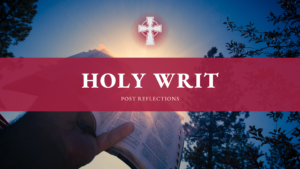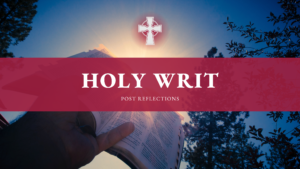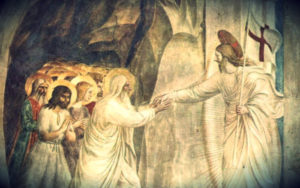
Lent is a time for fasting, not only from the immoralities that beset us (as we should always be striving to do) but also from those neutral things that, although in themselves are not unclean, can be tempting hooks that reel us deeper into our sinful state. Furthermore, as the Lenten season is a time of reflecting on our impending death consequent of our finitude under God’s Edenic curse (“ashes to ashes, dust to dust”), it is a time of mourning and foregoing much of our earthly joys to intensify our meditations on the heavenly joys of eternal life in Jesus Christ our Lord.
Read more about Anglican Fasting
The meditations of our hearts and the engagements of our hands are typically filled with a mix of heavenly, earthly, and even fleshly matters (for sin remains in us all). And as physical light and darkness hold an inverse relationship throughout Creation, so do they in the realm of our souls.
If we seek to decrease the darkness in us, we must do more than restrain from outward activities or temptations, for the root of our sinful behaviors and susceptibility to temptations comes from within, for it is “not that which goeth into the mouth [that] defileth a man; but that which cometh out of the mouth, this defileth a man” (Matthew 15:11 KJV).
If we are to have any hope in doing so, we must increase in our lives the very thing darkness cannot dominate–the light.
“In [the Word] was life; and the life was the light of men. And the light shineth in darkness; and the darkness comprehended it not”
(John 1:4-5 KJV)
Therefore fasting isn’t merely a practice of restraint but also of replacement. We must replace what we are fasting from with that which we strive to live for, or else the dark spirit which we’ve evicted will return with greater strength:
“When the unclean spirit is gone out of a man, he walketh through dry places, seeking rest, and findeth none. Then he saith, I will return into my house from whence I came out; and when he is come, he findeth it empty, swept, and garnished. Then goeth he, and taketh with himself seven other spirits more wicked than himself, and they enter in and dwell there: and the last state of that man is worse than the first. Even so shall it be also unto this wicked generation”
(Matthew 12:43-45 KJV)
We are not contending with matter, but with spirits. Even regarding our sinful “flesh,” we are contending with our own spirit riddled with remaining sin, as well as those countless other spirits bent on taking us down, “for we wrestle not against flesh and blood, but against principalities, against powers, against the rulers of the darkness of this world, against spiritual wickedness in high places” (Ephesians 6:12 KJV).
So how shall we then fast?
With prayer.
When Christ’s disciples couldn’t exorcise the demon out of a tormented child, they asked Jesus why they couldn’t cast him out.
Jesus responded:
“Because of your unbelief: for verily I say unto you, If ye have faith as a grain of mustard seed, ye shall say unto this mountain, Remove hence to yonder place; and it shall remove; and nothing shall be impossible unto you. Howbeit this kind goeth not out but by prayer and fasting”
(Matthew 17:20-21 KJV)
In other words, prayer and fasting are not only marks of faith but the very weapons we use to expel darkness within souls.
The only way to truly contend and remove darkness is by replacing it, filling the empty space with light, and prayer is an intensified engagement with light, where we not only meditate on the Word of God but our relationship with that Word, practicing humility in recognizing our utmost dependence on Him for our provision and protection in our petitions, summarized in how Jesus taught us to pray in the Gospel of Matthew:
Our Father which art in heaven, Hallowed be thy name.
Thy kingdom come, Thy will be done in earth, as it is in heaven.
Give us this day our daily bread.
And forgive us our debts, as we forgive our debtors.
And lead us not into temptation, but deliver us from evil:
For thine is the kingdom, and the power, and the glory, for ever. Amen.
Lent is not the only time fasting can be used in the fight against sin. Fasting is to be practiced in conjunction with prayer because it is an intensified removal of stuff in your life that typically occupies your mind and body. To not then fill your mind and body with something else, it’s no wonder every craving and temptation comes back like a bulldog of the soul, and before you know it, you’re worse off for attempting to kick your addictions.
Read More: Why Do Anglicans Celebrate Feast Days
Darkness must be replaced with light, or else you’ve only made more room for its conquest over you.
Our Mission
To multiply faithful servants of Christ; who will commit themselves to the worship and doctrines of the Anglican way, and who will work by God's grace and for His glory to disciple the nations through the ministry of the Church.








